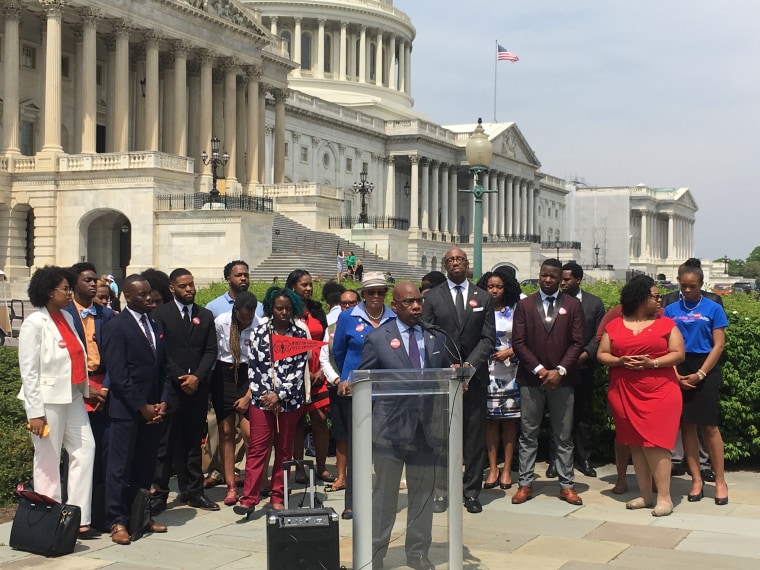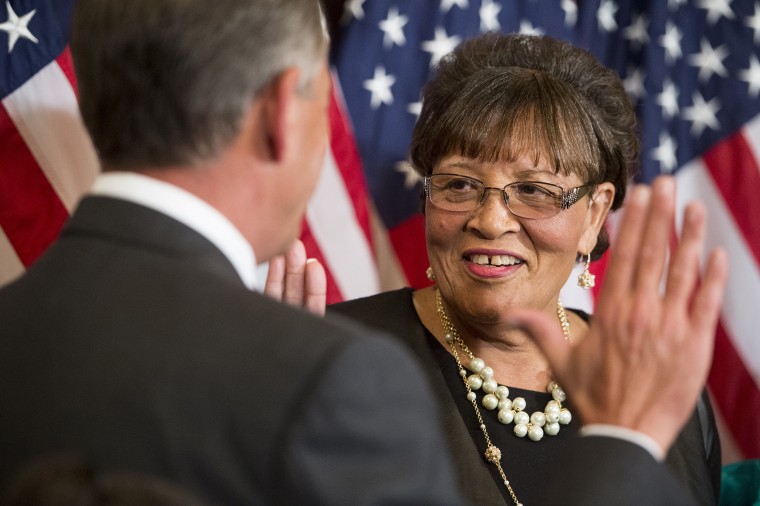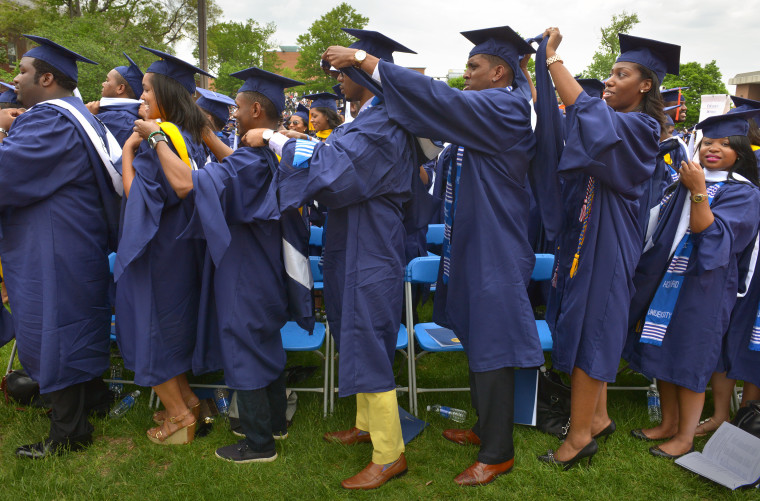In 1837, Cheyney University of Pennsylvania became the first Historically Black College and University (HBCU) in the United States of America. Today, there are 106 HBCUs across our nation, enrolling over 300,000 students each year. Throughout history, many of our nation’s greatest leaders have received degrees from HBCUs.
Amongst the esteemed alumni are legendary authors, like Maya Angelou and Alice Walker; civil rights leaders and activists, such as Rev. Dr. Martin Luther King Jr. and Rev. Jesse Jackson. As a graduate twice of North Carolina A&T State University and retired 40 year faculty member at Bennett College in Greensboro, I join a proud class of HBCU alumni who have served as Members of Congress.
HBCU alums have consistently shown their readiness for the real world. According to the United Negro College Fund (UNCF), 55% of African-American HBCU graduates say that their experience at an HBCU has better prepared them for life after college. This has led to Historically Black Colleges and Universities graduating 80% of African American judges, 50% of African American lawyers, and 40% of African American Members of Congress.
Related: OpEd: Trump Must Make Good on his Promises to HBCUs
During the month of September, we celebrate National HBCU Week, a time to commemorate and champion HBCUs and their contributions to our country. Our schools have contributed immensely to their communities and provided countless students with opportunities yet; they don’t receive the same investment from government or private industry as other educational institutions.
It’s long past time we stopped resting on our laurels and take the fight for greater investment in our institutions to both our government and our corporate partners.
In Congress, the Bipartisan HBCU Caucus is working hard to direct much needed resources to HBCUs. In July, my colleagues and I passed an amendment to the Department of Defense funding bill that provided an additional $4.1 million in HBCU research funding, a 54% increase in the requested funding from the White House budget. As my congressional colleagues and I consider other major legislation, we should be seeking creative, bipartisan solutions and opportunities for our schools in each bill that comes through Congress.
But government alone cannot be the sole answer. We must gain the buy-in and investment of private organizations and corporations to move HBCUs forward. Organizations like the United Negro College Fund (UNCF) and Thurgood Marshall College Fund (TMCF) are leading advocates for HBCUs and have made great investments in their campuses.
UNCF invested $4.5 billion in 37 colleges and universities to offset operational expenses and reduce student tuition costs. TMCF continues to make partnerships with industry leaders such as Apple, Inc. whose internship allows HBCU students to work at Apple headquarters and receive up to $25,000 in scholarships.

Other private corporations have taken notice of the caliber of students HBCUs are graduating and have begun investing in their success as well. Just this summer, Intel pledged $4.5 million to support STEM pathways for students at six HBCUs. Intel has also promised a three year HBCU Grant Program that will make investments in computer science and electrical engineering programs.
The investments made by these organizations are crucial but they cannot be our last. I challenge other entities to use these investments as a roadmap for them to follow.
Related: Exclusive: Omarosa Manigault on Trump’s Executive Order on HBCUs
This year, during National HBCU Week, I’m hosting a series of events to continue outreach efforts to legislative leaders and industry executives. These events will take place during the Congressional Black Caucus Foundation’s 47th Annual Legislative Conference and will highlight the importance of HBCUs and champion the need for increased public-private partnerships.

The main event, the inaugural HBCU Braintrust entitled “The Power of Our Past-The Force of Our Future,” will feature HBCU leaders and corporate executives from companies who have pledged to work with our schools. I’m proud to convene these conversations to continue moving our schools forward because we can’t afford to waste any more time--we must demand action now.
Following this week’s events, it is my hope that Congress will support legislation like the HBCU Capital Financing Improvement Act to recognize the bright minds that HBCUs produce and serve as a reminder that these institutions are here to stay.
As I think about what HBCUs have meant to me, I am reminded of a quote from W.E.B. Dubois, “Of all the Civil Rights for which the world has struggled and fought for 500 years, the right to learn is undoubtedly the most fundamental.” Our nation’s HBCUs were founded on this principle and must continue fighting to realize the promise of our future. Consider this your call to action.
Congresswoman Alma S. Adams, Ph.D. is a two time graduate of North Carolina A&T State University and a retired professor of 40 years from Bennett College. Rep. Adams founded the Congressional Bipartisan HBCU Caucus in 2015 and continues to co-chair the Caucus with Congressman Bradley Byrne (R-AL).
